What is breast cancer?
Breast cancer develops when normal cells of the breast change behaviour and grow out of control. The abnormal cells divide to form a tumour and this mass of cells is often palpable as a lump in the breast. The cells can also break off and spread to other places in the body, by the lymph to lymph nodes or by blood vessels to other organs.
How common is breast cancer in SA?
Breast cancer is the most common cancer among women in South Africa. The most recent results from the National Cancer Registry showed that more than 8100 women were diagnosed in 2013. One out of 28 South African woman will develop breast cancer during their lifetime and numbers are expected to rise in the future.
Although some population groups have a higher risk than others, it is really important to know that any woman can develop breast cancer. It is also important to understand that breast cancer is much more common in women but men can get breast cancer too.
What are the signs of a breast cancer?
A breast lump: this is the most common sign. The lumps are often not painful when they are small.
Skin changes: this includes dimpling, redness or an ulcer (a break through the skin)
Nipple changes: the nipple can be pulled in or change direction, there can also be abnormal discharge from the nipple
A lump in the armpit: there can be palpable lymph nodes
A change in breast size and shape
How do we test for breast cancer?
Any patient with a suspected cancer needs what we call a “triple assessment”. This includes an examination by a doctor, breast imaging by mammogram and ultrasound and a needle biopsy which takes small samples of tissue for testing.
What is breast cancer staging?
Your doctor will do some tests to check how large the cancer is and whether it has spread to lymph nodes or elsewhere in the body. Your choice of treatment plan will depend on staging to some part. Early-stage small breast cancers are more likely to respond well to treatment.
Are all breast cancers the same?
Different types of breast cancer can have very different behaviour, which is called tumour biology. This is why treatment can be very different among breast cancer patients. Breast cancer describes many different diseases and that is what makes the understanding and the treatment both difficult and interesting.
How is breast cancer treated?
There are various different treatments and the treatment plan depends on the type and biology of the cancer, the stage and also on patient choices. Management of breast cancer has become very complex and specialized and is therefore best treated in a multi-disciplinary team with experts from each field. They will discuss your situation to find the best way forward for you.
In general, most patients will need treatment to the breast area, which is called “local treatment” and they need treatment for the whole body, which is called “systemic treatment”. Surgery and radiation are local treatments, chemotherapy, immunotherapy, hormone and targeted therapy are systemic treatments.
Most patients will have some or all of the following treatments:
Surgery: Almost all women will need surgery to remove the cancer. This can be a mastectomy, the removal of the breast, or in most cases breast-conserving surgery in which only the lump with some healthy tissue around it is removed and women keep their breast. Women who have breast-conserving surgery usually must have radiation after surgery. In most cases, the surgeon will also operate to test or remove lymph nodes in the armpit.
Radiation therapy: This treatment is mostly used after surgery to destroy any remaining cancer cells in the breast or armpit area.
Chemotherapy: This treatment uses medications to control cancer cells. Some women will need chemotherapy before surgery and some may need chemotherapy after surgery.
Hormone therapy and targeted therapy: Some medications only work if the cancer has certain characteristics. Your doctor will check if these treatments would help you.
Treatment of breast cancer can take a long time. Often the initial intense treatment can take several months to a year. Hormone therapy often only starts afterwards and can take up to ten years. You need to know that many people with breast cancer do very well after treatment. People who get high-quality standardized treatment (treatment in a multidisciplinary team who follow guidelines) and who present at an earlier stage (with small cancers) are more likely to do well.
How should I prepare for a visit to the doctor?
Treatment of breast cancer includes many choices and you are likely to meet a number of specialists from the multidisciplinary team during your treatment journey. It is really important that you are part of decisions. It is always of great help to bring a family member or close friend along. You should always let your team know how you feel about a treatment and you need to make sure you understand your options. In general, you should ask the following about any of the treatments offered:
What are the benefits (upsides) to the treatment? Will it make me feel better or live longer?
What are the risks (downsides) to the treatment?
Are there any alternatives to the treatment?
What will happen if I do not have the treatment?
What will happen after treatment?
You will need to come for regular check-ups. You will also need some regular tests like a mammogram. The doctor will check you at each visit but you should also watch out for some new changes which could be signs of the cancer coming back. Some examples are new lumps in the scar or breast area, pain in bones, chest or stomach, breathing problems or headaches and if you have any new symptoms you should inform your doctor.
What should I do if I have found a lump?
Although most breast lumps are not a cancer you should always have the lump checked. Your doctor will examine you and you will need a breast ultrasound. Often a mammogram will also be done especially if you are over the age of 35 years. If there is any concern a biopsy will then be performed.
What are the risk factors that increase the chance of getting a breast cancer?
In 90% of cases, the cause for a woman developing breast cancer is unknown. Most risk factors cannot be changed but some can be modified. Some of the known risk factors include:
Gender: women are a 100 times more likely to develop breast cancer than men.
Age: the older a woman, the more likely she is to get breast cancer.
Ethnicity: White women have the highest risk of developing a breast cancer
Family history: A history of breast cancer in a first-degree relative (eg, mother, sister, or daughter) is only reported by 20% of women with breast cancer. Only about 5% of women have a gene abnormality (like a BRCA mutation).
Previous radiotherapy to the chest wall: patients who have had radiation for a lymphoma have an increased chance of breast cancer.
Personal history of breast cancer: if a woman has had one breast cancer, she is at a higher risk than normal of developing another breast cancer.
Having a personal history of having had a breast biopsy for other problems over the age of 40.
Hormone-replacement therapy
Obesity
Lifestyle factors such as alcohol intake and physical inactivity
What can I do to reduce breast cancer risk?
Exercise regularly
Maintain a healthy weight and a balanced diet
Limit alcohol intake
Avoid smoking
Avoid or limit the duration of hormone-replacement therapy
Planning to have a baby before the age of 30 and breastfeeding for at least six months can also reduce risk
All women need to know their breasts and should examine their breasts on a monthly basis. Breasts change over the menstrual cycle, with pregnancy and with age. The best time to examine your breasts is after the period or at any time during the month if you are no longer having periods. Technique is important:
Start by standing in front of a mirror. Are there any new changes? Put both your hands at your side and check your skin and nipples, the breast shape and dents.
Lift your hands above your head to check the lower part of the breasts. If your breasts are large you may need to lift them so you can see the skin under the breast.
Now lie down and lift your one arm above the head. This will flatten the breast and makes it easier to feel. With the other hand start feeling the breast in the area close to the armpit. You can move around the breast in circles to cover all areas. Then also feel under the armpit. You will need to bring down the arm to be able to relax the area and feel for lumps. You then switch hands and do the same on the other side. Always use the flat three middle fingers to feel. Don’t squeeze the breast between fingers as all breasts will feel lumpy like that.
If you have found any new changes always go and have it checked out.

Dr Seider is well known in the field of breast imaging, having established his practice in 1991 and only done breast work since 1996, long before stand- alone breast imaging practices became the norm.
He is highly specialised in breast screening, diagnosis and intervention and known for his exceptional personal and professional care.
His practice offers all radiological breast investigations and procedures and osteoporosis screening and follow up.

Dr Smilg qualified in South Africa as a radiologist in 1993 and obtained the UK radiology qualification FRCR in 1996.
She is a dedicated breast imager and interventionalist.
She has completed multiple courses in her sub- specialty, including a number of Laszlo Tabar courses, and stays up to date by attending local and international congresses, reading and interactions with peers.
She was head of the breast imaging department of a large radiology practice based on the East Rand for many years, during which time she opened and established a new branch in Bedfordview.
Dr Smilg currently works at Donald Gordon Medical Centre where she performs breast cancer screening, diagnosis and staging, localization procedures and post-treatment follow up, including reading of breast MRIs.
She aims to provide a warm, caring and professional service to her patients. She is currently involved in clinical trials and multiple multidisciplinary teams and has had publications in local and international journals. She has taught and lectured to mammography students.
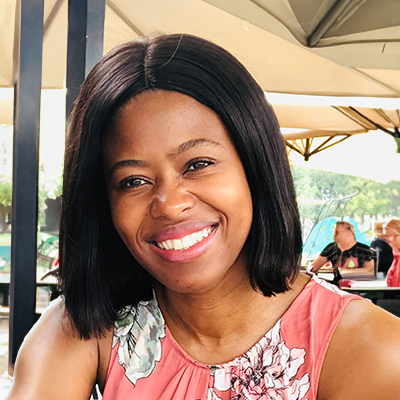
Dr Thato Sefanyetso is a general radiologist with a special interest in breast imaging.
She graduated in 2004 as a medical doctor at the University of the Witwatersrand and became a fellow of the College of Radiologists, South Africa in 2016. Upon joining private practice she took an interest in breast imaging and continues to advance in mammography, breast MRI, image-guided biopsies, in addition to general radiology.
Dr Sefanyetso currently practices at Sandton Radiology, with branches at both Sandton and Morningside Mediclinic, where she is also a director.
Website: www.bloch.co.za
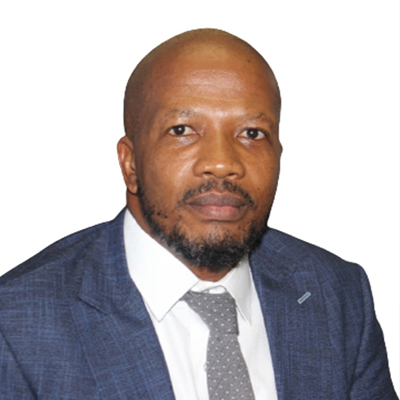
Current position: Histopathologist and Partner at Lancet Laboratories Richmond, Johannesburg
Qualifications: MBChB (Natal), FC Path (Anat)SA.
Affiliations:
BIGOSA - Breast Interest Group of Southern Africa (executive committee member)
IAP: International Academy of Pathology member
Areas of interest: Breast, GIT and dermatopathology.
Website: www.lancet.co.za/pathologists
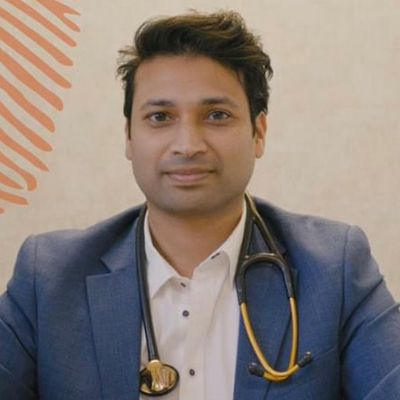
Dr Naidoo completed his Radiation Oncology fellowship at the University of the Witwatersrand in 2014.
During his time as a registrar, he won the best Registrar Poster Presentation in the country at the South African Society for Clinical and Radiation Oncology (SASCRO) 2013.
Dr Naidoo joined the de Mûelenaere Oncology Group in 2015 and is now one of the Directors of the group and Unit Head of Sandton Radiation Oncology.
In June of 2016, he completed his Master of Medicine in Radiation Oncology at the University of Witwatersrand and also previously served as the Radiation Oncology Advisor to the Ministry of Health South Africa between 2017-2021.
His other professional duties include:
Reviewer for The South African Journal of Oncology (SAJO) Review 175 - [March 2021].
Served as an Honorary Lecturer in the Department of Radiation Oncology, Faculty of Health Sciences, University of the Witwatersrand (2018-2020).
Served on the executive committee of the South African Society of Clinical and Radiation Oncology (SASCRO) [2017-2019].
Executive member of the Morningside Breast Multidisciplinary Tumour Board.
Founder and chairman of the Johnson-Rose Cancer Foundation.
Member of the Breast Wellness Centre Multidisciplinary Tumour Board.
Dr Naidoo is also a member of the European Society for Radiotherapy and Oncology (ESTRO) and mentee of Prof Philip Poortmans past president of ESTRO and one of the world’s experts in breast oncology.
He currently practices at the Sandton Oncology Centre, Ahmed Kathrada Cancer Institute, Life Fourways Hospital, Sunninghill Hospital and Krugersdorp Hospital.
Whilst Dr Naidoo treats various cancer sites, he has a special interest in Breast Cancer, Gynae Oncology, GIT Cancers and Neuro Oncology.
His current passion is research and is currently on the path of attaining his PhD in Oncology with the help of Mayo clinic Rochester USA and MD Anderson Cancer Centre Texas USA.
Website: www.sandtononcology.co.za/specialist

Simon J. Nayler is currently the managing pathologist at Drs Gritzman & Thatcher Laboratories, and is also affiliated with the Donald Gordon Medical Centre, University of the Witwatersrand, Johannesburg.
He was previously associate professor and head of the NHLS histopathology laboratory at Jhb Hospital and had an interest in breast pathology for most of his career having chaired the breast pathology forum at Jhb Hospital from 1998-2008, ending when he entered private practice.
He has heled several appointments in professional and academic societies, including president of the South African College of Pathologists (Past President), Federation of South African Societies of Pathology (Past President) and International Liaison Committee of Presidents of Pathology Colleges (Member).
He is a past president of the Breast Interest Group of South Africa (BIGOSA) and also a member of the Special Technical Committee (STC) of the South African National Accreditation System (SANAS).
He has more than 50 peer-reviewed publications as well as a 2 textbook chapters to his credit, and has been invited to lecture on numerous occasions, both locally and overseas.
Website: www.gtlab.co.za
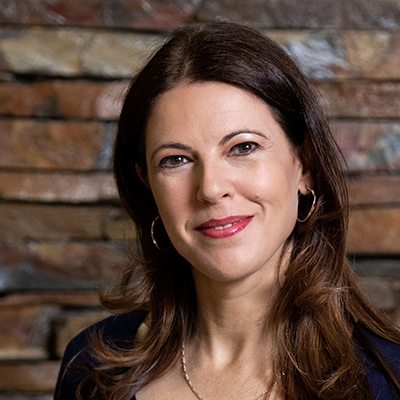
Dr Shirley Lipschitz is the founder of the breast wellness centre which offers state of the art equipment for screening and diagnosis of breast disease.
The team of 4 doctors and mammographers are dedicated breast imaging specialists. We also do bone densitometry for the diagnosis and follow up of osteoporosis.
Our practices are at both Linksfield and Sunninghill hospitals.
Website: www.breastwellness.co.za
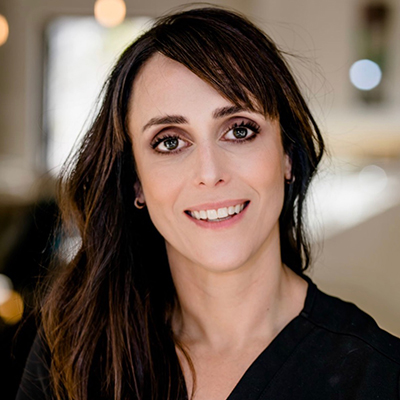
I know that surgery of any kind can be daunting – and is not something to take lightly. This is why I would like to share my philosophy with you, as well as what you can expect from me. I believe that every person deserves to feel as good as they possibly can, inside and out. No matter your circumstances or where you are in life, I want to help you enhance your experience of living and co-create your recovery as part of the breast team I am honoured to be a part of.
No person’s situation or perspective is the same. My holistic approach to your well-being ensures that you receive treatment in line with the highest ethical practices, and that I focus on your specific needs and circumstances as my patient, throughout the process.
When you are passionate about something, it fills you, drives your energy flow, and gives your life purpose and meaning. That is how I feel about surgery and about your future surgery. I look forward to meeting you.
Website: www.drshereekoonin.co.za
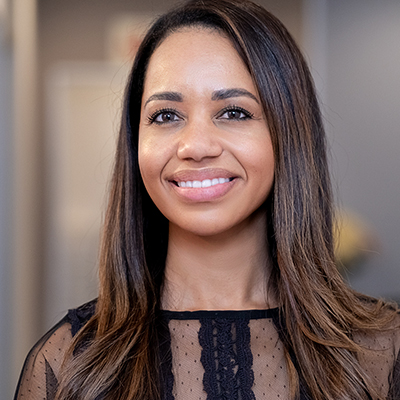
Dr. Ronwyn van Eeden is a Medical Oncologist in Rosebank, Johannesburg. She is also an honorary consultant in Medical Oncology at the Chris Hani Academic hospital.
Dr. van Eeden and has several peer review journal publications, presents at many local and international meetings and symposia and serves on local advisory boards. She was a member of the executive committee for the South African Society of medical Oncology. She has a special interest in breast and lung cancer as well as immuno-oncology.
Website: www.oncorv.co.za

Dr Peter Schoub qualified as a doctor in 1998, and as a radiologist in 2007. For the last 10 years he has focused on breast imaging and obtained the European Diploma in Breast Imaging in 2018. Dr Schoub is based at the Parklane Women’s Imaging Centre. The centre is the only American College of Radiology accredited mammography, breast ultrasound and breast MRI facility in South Africa.
Dr Schoub works closely with several breast cancer multidisciplinary teams that include breast surgeons and oncologists, assisting with diagnosis, staging, monitoring tumour response and presurgical localisation. He has recently introduced cryoablation for breast cancers into the unit. He is also an honorary lecturer in the Department of Radiology at WITS University.
Website: www.parklaneradiology.co.za

Dr Russel Seider & Associates at Donald Gordon Medical Centre is a practice dedicated to breast health.
Dr Russel Seider and Dr Pamela Smilg provide imaging services in a warm, caring and professional setting.
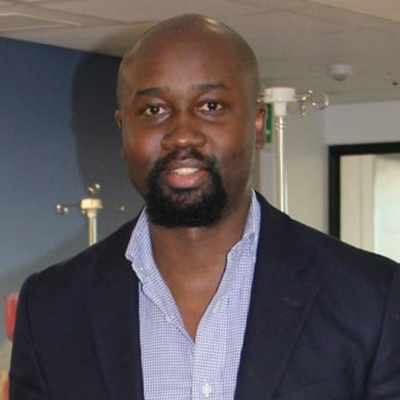
Dr. Omondi Ogude is a medical oncologist serving as a director of the Sandton Oncology Medical Group and practices at the Sandton Oncology Centre. Dr. Ogude received his medical degree in 2005 from the University of the Witwatersrand. He subsequently completed his Internal Medicine specialisation in 2011 and a medical oncology fellowship in 2014 at the same institution.
Dr. Ogude specialises in Breast, Gastrointestinal, and Gynecological malignancies and is actively involved in research. He serves as a principal investigator and sub-investigator on multiple trials. He also chairs and sits on various multidisciplinary forums in Johannesburg and advisory boards locally and internationally.
He is dedicated to advocacy work in oncology, serving as a director and board member of Campaigning For Cancer and The Johnson Rose Cancer Foundation, both non-profit organisations that promote better cancer care and awareness in South Africa.
As an active member of the South African Oncology Consortium, European Society of Medical Oncology, and American Society of Clinical Oncology, Dr Ogude stays informed on the latest developments in his field. His involvement in these organisations advances his knowledge in the field of oncology and providing the best care possible for his patients.
Website: www.oncology.co.za
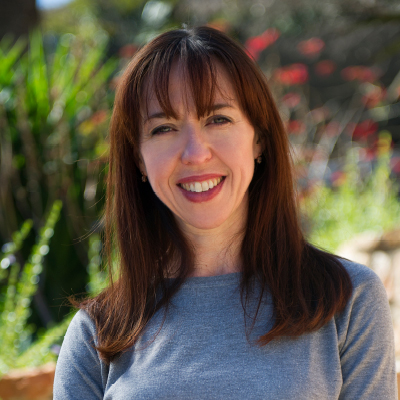
Genetic Counselling Services
Noelene Kinsley is a genetic counsellor with an interest in hereditary cancer risk and helps individuals and families to reduce the impact of cancer in their lives.
Genetic counsellors review family and personal cancer history to determine the risk for a genetic/hereditary cancer risk. If appropriate they assist with genetic testing, and based on the outcome, preventative care and management.
Noelene has been in practice since 2011 and started GC Network, a genetic counselling group practice, to increase access to clinical genetic support. The team has a passion to help people make sense of health and genetics.
Website: www.gcnet.co.za

Dr Tunmer is a Specialist Radiation Oncologist practicing at the WITS University Donald Gordon Medical Centre, Johannesburg, South Africa. She completed her undergraduate medical training at The University of Pretoria.
Following internship and community service Dr Tunmer worked as a medical officer at the Charlotte Maxeke Johannesburg Academic Hospital in Johannesburg, rotating through the Trauma Unit, Trauma ICU and Medical Casualty.
She also worked in various Casualty departments at private hospitals. In 2008 she joined the Medical Oncology Unit at CMJAH as a medical officer, before starting her specialist training in the Department of Radiation Oncology in 2009. She completed her training in 2012 and thereafter was employed as a Consultant Specialist Radiation Oncologist at CMJAH until 2014, before joining the WDGMC in full time private practice. She has remained involved in the teaching of registrars through WITS and is an examiner for the College of Medicine of South Africa as well as a member of the College Council of the Fellowship of Radiation Oncologists.
She currently serves as the President of SASCRO (South African Society of Clinical and Radiation Oncologists) as well as the Secretary of BIGOSA (Breast Interest Group of Southern Africa). A large proportion of Dr Tunmer's practice includes the management of patients with GIT malignancies, GUT malignancies, breast cancer, head and neck cancer & skin cancer.
She regularly attends Multi-Disciplinary Team meetings where challenging cases are discussed.